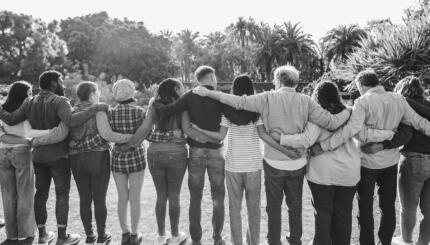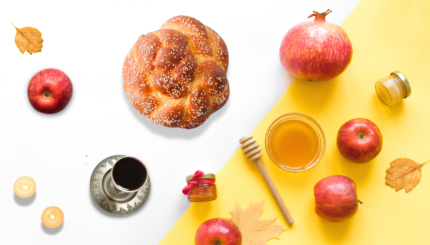Question: I notice that sometimes when I’m saying birkat hamazon (grace after meals) in a group, we say a paragraph that begins Tehilat Adonai, but other times we don’t. I can’t figure out when we are and aren’t supposed to say it, and there are no instructions in the booklets I have. What’s the story with this paragraph?
–Levi, Atlanta
Answer: Funnily enough, it is something of a story. Once upon a time, we began grace after meals on Shabbat and holidays with Psalm 126. This psalm is all about returning to the land of Israel after exile, and how glorious the return will be. Not surprisingly, this psalm was later adopted as a sort of anthem by early Zionists, who dreamed that via hard work they, too, would have a triumphant return to Zion, just as the psalmist describes.
But from the beginning, Zionism was a divisive movement, and many Eastern European communities were against the return to Israel. They felt that according to prophecy, only the Messiah will lead the Jews back to Israel, and so the Jewish community should wait for that to happen instead of advocating for a Jewish state.

The paragraph that you’re talking about, which some people add after Psalm 126, is a collection of four verses from Psalms: 145:21; 115:18; 118:1; 106:2. I asked Rabbi Joshua Cahan, editor of the Yedid Nefesh bencher, about this paragraph and he explained, “[it] is a collection of four verses whose point is that WE don’t create wonders for ourselves, GOD does it for us.” Rabbi Cahan explained that people have used these verses to suggest that we should not try to ‘hurry the redemption.’ Though the paragraph seems to date back to the times of the famed mystic Isaac Luria, it gained prominence when people started to use it in opposition to Zionism.
In Israel today, most communities skip that paragraph because of its association with anti-Zionist sentiments. Outside of Israel you’ll find some families and communities that always say it, and others that never do, and still others that do sometimes, but not always. It’s a good idea to follow the tradition of whatever community or home you’re in. And it may be helpful to remember that despite some people’s frustrations with this paragraph, the actual content of the verses is not offensive and is a fitting idea with which to open grace after meals.
So there are no hard and fast rules about whether or not you should say this paragraph, but now you know the story behind it, and you can live happily ever after.
Have a question for the Expert? Ask away!
Shabbat
Pronounced: shuh-BAHT or shah-BAHT, Origin: Hebrew, the Sabbath, from sundown Friday to sundown Saturday.


